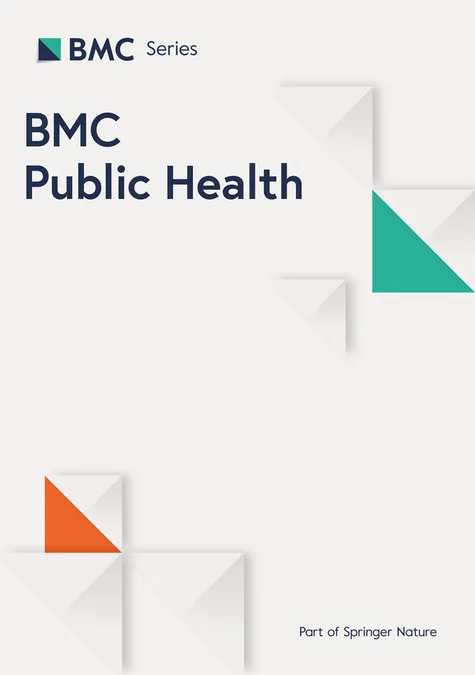
The Harrowing Link Between Adult Violence and Childhood Trauma: What You Need to Know!
2025-03-29
Author: Jia
Across the globe, a staggering number of people have fallen victim to interpersonal violence, presenting a serious public health crisis. In Sweden, alarming statistics reveal that 46% of women and 38% of men have faced severe sexual, physical, or emotional violence in their lifetime. While the immediate repercussions of violence—like physical injuries and fatalities—are stark, emerging research highlights that the shadows of such experiences often linger, manifesting as long-term health issues throughout an individual's life.
The Impact of Adverse Childhood Experiences (ACE)
The Adverse Childhood Experiences (ACE) study has propelled a wealth of research on the lasting impacts of violence, neglect, and household dysfunction as children. More than twenty years later, this groundbreaking work continues to underpin theories into how childhood adversity correlates with poorer health outcomes in a distinct, dose-dependent manner.
Connection Between Childhood Adversities and Mental Health
Scientific reviews and extensive meta-analyses indicate a robust connection between childhood adversities and subsequent mental health complications, as well as unhealthy behaviors in adulthood. Moreover, emerging evidence suggests associations with chronic physical conditions such as ischemic heart disease, type 2 diabetes, and cancer. Yet, much of this research relies on small, often non-random samples, raising questions about whether different types of childhood trauma—like physical or sexual maltreatment—carry heavier health burdens compared to other adversities, such as household dysfunction.
The Cycle of Trauma and Victimization
Shockingly, individuals who endure one form of violence are frequently at risk for further victimization, reinforcing the cycle of trauma. Many who experience violence during childhood are inevitably subjected to additional violence as adults. However, significant gaps remain in our understanding of how these interconnected experiences throughout life affect long-term health, particularly in Sweden, where limited research has dissected childhood experiences and adult revictimization.
The Trauma-Informed Theory of Individual Health Behavior (TTB)
A model known as the Trauma-Informed Theory of Individual Health Behavior (TTB) posits that an individual's capacity to make health-positive choices post-trauma is significantly influenced by the severity and type of trauma faced, the physiological responses elicited by that trauma, and the resilience factors that might empower individuals to make beneficial choices despite their past. Thus, maltreatment exposure can severely hinder the ability to make healthy lifestyle choices, perpetuating environments ripe for future violence.
The Swedish Survey on Interpersonal Violence
In an effort to illuminate these connections, a study was conducted surveying a large, representative population of both women and men across Sweden. The survey, which attracted over 10,000 respondents, analyzed a broad definition of interpersonal violence as outlined by the World Health Organization, examining experiences of maltreatment as children and violence in adulthood to assess their correlating health impacts in adulthood.
Key Findings of the Study
Key findings indicated that while many individuals experienced just one type of childhood maltreatment, the interplay with adult victimization resulted in significantly higher odds of developing mental health issues such as anxiety and PTSD, as well as engaging in health-risk behaviors like heavy smoking and hazardous drinking. However, interestingly, while these mental health issues were prevalent, no significant correlations were found between childhood maltreatment and physical health problems such as cancer or type 2 diabetes.
Conclusion and Recommendations
This poignant investigation highlights the sometimes-overlooked impacts of violence across a person’s life, revealing that experiencing violence as a child increases vulnerability to additional violence and health complications in adulthood. Some researchers have formulated recommendations to address these crucial health correlates, advocating for systematic, trauma-informed approaches in health care that could significantly transform the outcomes for affected individuals.
This significant study not only sheds light on the traumatic burden shared by victims but also beckons for increased awareness and proactive approaches to address and mitigate violence. By fostering resilience and promoting healthier environments, there is hope for breaking the cycle of violence and its debilitating effects on health.
Join the Conversation!
Don't miss the conversation! Understanding these findings could change how we approach public health in our communities. Let’s talk about trauma and its profound impact on health!




 Brasil (PT)
Brasil (PT)
 Canada (EN)
Canada (EN)
 Chile (ES)
Chile (ES)
 Česko (CS)
Česko (CS)
 대한민국 (KO)
대한민국 (KO)
 España (ES)
España (ES)
 France (FR)
France (FR)
 Hong Kong (EN)
Hong Kong (EN)
 Italia (IT)
Italia (IT)
 日本 (JA)
日本 (JA)
 Magyarország (HU)
Magyarország (HU)
 Norge (NO)
Norge (NO)
 Polska (PL)
Polska (PL)
 Schweiz (DE)
Schweiz (DE)
 Singapore (EN)
Singapore (EN)
 Sverige (SV)
Sverige (SV)
 Suomi (FI)
Suomi (FI)
 Türkiye (TR)
Türkiye (TR)
 الإمارات العربية المتحدة (AR)
الإمارات العربية المتحدة (AR)